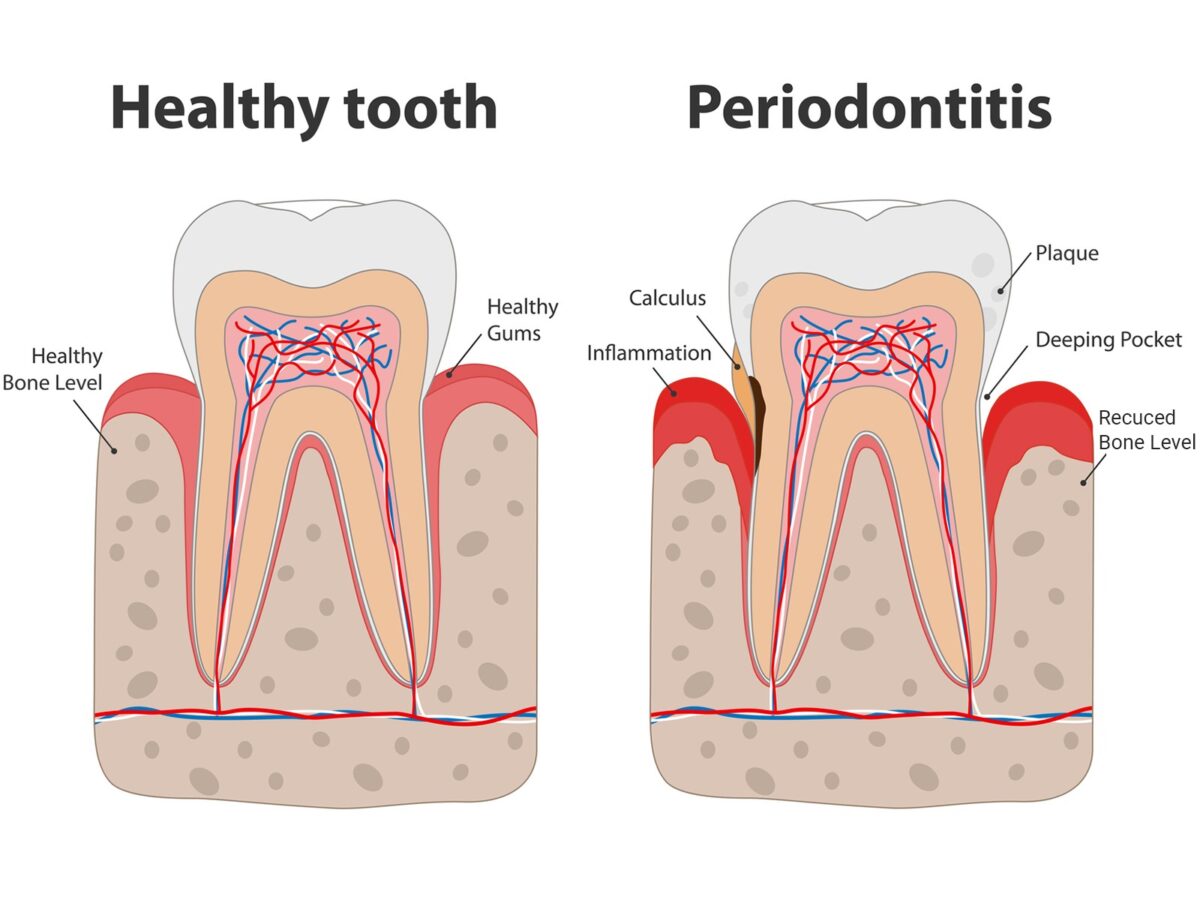Blog
Dental hygiene tips for healthy teeth & gums

How to know when my periodontal disease is worse?
Periodontal disease is severe gum disease. In this disease, the soft tissues of the gums get infected and damaged. But to know if your periodontal disease is at the starting stage or is severe, you first have to know how to spot it.
The primary cause of the periodontal disease is the same as any other dental issue: poor oral hygiene. The infections or germs in periodontal disease directly attack the roots holding the teeth in place, and in its early stages, it is called gingivitis. If you suffer from periodontal disease, you will likely experience swollen gums, bleeding, sore teeth, etc.
There are multiple ways to control periodontal disease, but before any medication, you must start with proper brushing, flossing, and a tongue-cleaning routine. Once you have the basics of dental hygiene in place, you can easily prevent oral/gum diseases like periodontal.
How to spot the signs of periodontal disease
There are some common signs and symptoms that you must look out for because these can lead to a severe periodontal infection:
- Sensitive and Swollen gums: In the early stages of periodontal disease, swollen and sensitive gums for days without any particular reason is one of the most common signs that you can look out for.
- Decreasing gum line: As you know the infection and germs in periodontal disease directly impact the gum, so if you notice a receding gum line at a high speed, you must get professional dental care services.
- Loose teeth: When the roots of the teeth are attacked in periodontal disease, it affects the roots that hold the teeth in place, due to which your teeth tend to lose their sturdiness; whenever you see that happening, you must take it as an emergency sign.
- Bleeding: Gum bleeding is expected due to harsh brush strokes and stops after a few seconds, but if you notice severe gums bleeding while eating, brushing, etc., it might just be a sign of periodontal disease.
- Falling teeth: Falling teeth are one of the most severe signs of periodontal disease. You might have a severe periodontal infection if you see your teeth falling, with swollen gum, receding gum lines, bleeding, etc.
Suppose you see the symptoms mentioned above worsening, and you can’t seem to have control over them even after changing your oral care routine. In that case, you must visit your dentist for proper treatment as it is a sign of a badly spread periodontal infection.
Does age play a role in periodontal disease?
Yes, age matters in periodontal disease. A recent study suggests that people who come under the age group of 30 are 40-41% likely to develop periodontal disease, and not taking proper care of your oral hygiene could make it worse.On the other hand, adults around the age of 65-70 are 70% more likely to have a periodontal infection; firstly, it is due to the age factor, and secondly, it is the improper brushing routine.
How can you avoid periodontal disease from getting worse?
Any gum-related disease, including periodontal, can be reversed, or you can stop it from worsening. The only thing you need to keep in mind is to have an accurate and effective plaque control routine. You have to ensure you are not letting the thick layer of plaque on your gum lines weaken your teeth. You can book weekly dentist appointments to get rid of the plaque if you can’t do it alone. In addition, practicing basic dental care routines like brushing teeth twice a day, using mouthwash, etc., is a bonus.


